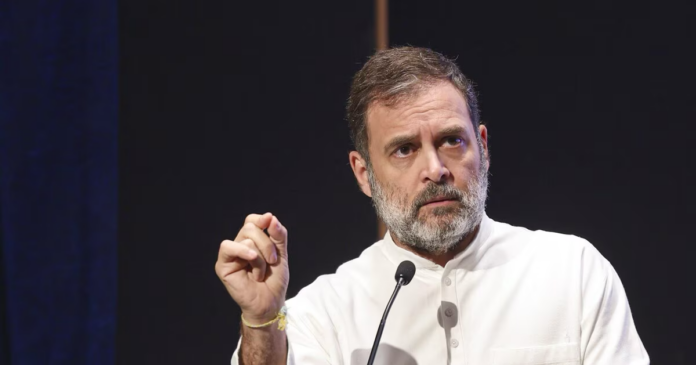Political conflict has become a defining feature of contemporary Indian politics, particularly in the context of the ongoing power struggle between the Congress party and the ruling Bharatiya Janata Party (BJP). Recently, Congress leader Rahul Gandhi made headlines during the inauguration of the party’s new headquarters in New Delhi, where he accused the BJP and the Rashtriya Swayamsevak Sangh (RSS) of capturing every institution in the country. This article explores the implications of Gandhi’s statements, the responses from BJP leaders, and the broader context of political conflict in India.
Political conflict is not merely a matter of differing ideologies; it often involves deep-seated issues related to governance, representation, and the very fabric of Indian democracy. During the inauguration event, Gandhi’s remarks were pointed and provocative, particularly in light of recent comments made by RSS chief Mohan Bhagwat regarding India’s independence. Gandhi asserted that Bhagwat’s claim that true independence was achieved with the construction of the Ram Temple in Ayodhya undermines the sacrifices made during the freedom struggle.
The Context of Gandhi’s Remarks
Gandhi’s comments came in response to Bhagwat’s assertion that the date of the Ram Temple consecration should be celebrated as a symbol of India’s true independence. This statement, according to Gandhi, not only discredits the historical significance of 1947 but also attacks the Constitution, which he views as the culmination of the freedom movement. He argued that such remarks would be considered treasonous in any other country, highlighting the gravity of the situation.

In his speech, Gandhi emphasized the symbolic importance of the new Congress headquarters, stating that it represents the hard work and sacrifices of millions of Indians. He framed the current political landscape as a clash between two opposing visions for India: one represented by the Congress party, which he claims values diversity and inclusivity, and the other represented by the BJP and RSS, which he accuses of promoting a centralized and exclusionary agenda.
BJP’s Response to Gandhi’s Accusations
In response to Gandhi’s statements, BJP president JP Nadda took to social media to counter the Congress leader’s claims. Nadda accused Gandhi of revealing the “ugly truth” about Congress, suggesting that his comments indicate a desire to undermine the Indian state. He labeled Gandhi and his associates as “Urban Naxals” and part of a “Deep State” that seeks to discredit India on the global stage.
Nadda’s remarks reflect a broader strategy employed by the BJP to frame dissenting voices as threats to national integrity. By labeling Gandhi’s criticisms as part of a conspiracy against the state, the BJP aims to rally its base and portray itself as the defender of national interests. This tactic has been a hallmark of the party’s approach to political conflict, particularly in the face of opposition criticism.
The Broader Implications of Political Conflict
The exchange between Gandhi and Nadda underscores the deepening political divide in India. As the Congress party seeks to position itself as a champion of democratic values and pluralism, the BJP continues to assert its vision of a strong, centralized state. This conflict is not merely ideological; it has real-world implications for governance, civil liberties, and social cohesion.

Gandhi’s assertion that the current government does not respect the Constitution or the national flag resonates with many who feel marginalized by the BJP‘s policies. His call for inclusivity and recognition of diverse voices reflects a growing concern among various communities, including Dalits, minorities, and backward castes, who fear being sidelined in the current political climate.
The Future of Political Conflict in India
As political conflict intensifies, the stakes for both parties are high. The Congress party must navigate its identity and relevance in a landscape dominated by the BJP’s narrative. Meanwhile, the BJP faces the challenge of maintaining its support base while addressing the concerns of those who feel alienated by its policies.
The ongoing political conflict in India is likely to shape the country’s future, influencing everything from electoral outcomes to social dynamics. As leaders like Rahul Gandhi and JP Nadda continue to engage in public discourse, the implications of their statements will resonate beyond the political arena, affecting the lives of millions of Indians.
In conclusion, the political conflict between the Congress party and the BJP is emblematic of broader societal tensions in India. As both parties articulate their visions for the country, the discourse surrounding governance, representation, and national identity will remain at the forefront of Indian politics. The outcome of this conflict will not only determine the future of political parties but also the direction of Indian democracy itself.

